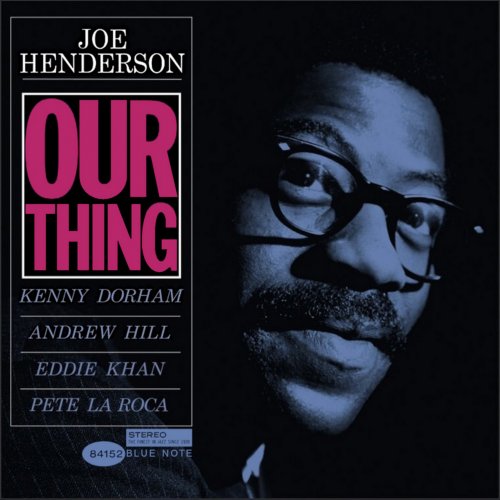Artist:
Louis Prima And His New Orleans Gang
Title:
The Chronological Classics: 1937-1939
Year Of Release:
2000
Label:
Classics [1146]
Genre:
Jazz, Swing
Quality:
FLAC (tracks + .cue,log,scans)
Total Time: 70:05
Total Size: 150 MB(+3%)
WebSite:
Album Preview
Tracklist01. Fifty Second Street (2:50)
02. The Love Bug Will Bite You (3:07)
03. I Just Can't Believe You're Gone (2:35)
04. Rhythm on the Radio (2:34)
05. Danger, Love at Work (2:59)
06. Afraid to Dream (2:38)
07. You Can't Have Everything (2:48)
08. Tin Roof Blues (2:52)
09. Now They Call It Swing (3:04)
10. Yes, There Ain't No Moonlight (3:12)
11. Rosalie (2:35)
12. Where Have We Met Before? (3:20)
13. Why Should I Pretend? (3:15)
14. Doin' the Serpentine (3:03)
15. You Call It Madness (2:59)
16. Nothing's Too Good for You (3:05)
17. Show Me the Way to Go Home (2:52)
18. Exactly Like You (2:45)
19. Jitterbugs on Parade (2:36)
20. Now and Then (2:56)
21. A Good Man Is Hard to Find (3:02)
22. If I Could Be with You One Hour Tonight (3:02)
23. Of Thee I Sing (2:59)
24. Sweet and Low Down (2:57)
During the late 1930s Louis Prima evolved ever so slightly beyond the New Orleans revival and hot novelty formulas that he'd milked so relentlessly from 1934-1936. Almost everything he recorded during the years 1937-1939 followed the same pattern of small group swing lathered over with Prima's showy vocals. These records didn't sell very well, and neither Vocalion nor Decca felt obligated to keep him on their rosters. The only two instrumentals heard here are a vigorous "Tin Roof Blues" and a neck-snapping "Jitterbugs on Parade" which is played so fast that the band sounds almost tortured rather than enthused. Poor Louis was desperate, his vocals were overbearing, the public wasn't interested, so it seems he figured the only thing left to do was to play so fast that it hurt. On each of the vocal tracks his frantic humor seems rather forced. It's good to have access to these recordings in order to satisfy one's curiosity and get a glimpse of an overview of the man's recording career, but they are certainly not the best of Louis Prima. Greater enjoyment will be derived from the work of the men he so closely imitated during the 1930s: Louis Armstrong and Wingy Manone.
Exact Audio Copy V0.99 prebeta 3 from 28. July 2007
EAC extraction logfile from 19. June 2009, 16:31
Louis Prima & His New Orleans Gang / Chronological 1937-1939
Used drive : BENQ DVD DD DW1620 Adapter: 0 ID: 0
Read mode : Secure
Utilize accurate stream : Yes
Defeat audio cache : Yes
Make use of C2 pointers : No
Read offset correction : 618
Overread into Lead-In and Lead-Out : No
Fill up missing offset samples with silence : Yes
Delete leading and trailing silent blocks : No
Null samples used in CRC calculations : No
Used interface : Installed external ASPI interface
Gap handling : Appended to previous track
Used output format : Internal WAV Routines
Sample format : 44.100 Hz; 16 Bit; Stereo
TOC of the extracted CD
Track | Start | Length | Start sector | End sector
---------------------------------------------------------
1 | 0:00.32 | 2:49.65 | 32 | 12771
2 | 2:50.22 | 3:07.29 | 12772 | 26825
3 | 5:57.51 | 2:34.72 | 26826 | 38447
4 | 8:32.48 | 2:34.30 | 38448 | 50027
5 | 11:07.03 | 2:59.09 | 50028 | 63461
6 | 14:06.12 | 2:37.44 | 63462 | 75280
7 | 16:43.56 | 2:47.66 | 75281 | 87871
8 | 19:31.47 | 2:52.08 | 87872 | 100779
9 | 22:23.55 | 3:03.51 | 100780 | 114555
10 | 25:27.31 | 3:11.52 | 114556 | 128932
11 | 28:39.08 | 2:35.28 | 128933 | 140585
12 | 31:14.36 | 3:19.59 | 140586 | 155569
13 | 34:34.20 | 3:14.61 | 155570 | 170180
14 | 37:49.06 | 3:02.46 | 170181 | 183876
15 | 40:51.52 | 2:59.19 | 183877 | 197320
16 | 43:50.71 | 3:04.49 | 197321 | 211169
17 | 46:55.45 | 2:51.72 | 211170 | 224066
18 | 49:47.42 | 2:45.12 | 224067 | 236453
19 | 52:32.54 | 2:36.07 | 236454 | 248160
20 | 55:08.61 | 2:56.31 | 248161 | 261391
21 | 58:05.17 | 3:02.29 | 261392 | 275070
22 | 61:07.46 | 3:01.59 | 275071 | 288704
23 | 64:09.30 | 2:59.23 | 288705 | 302152
24 | 67:08.53 | 2:56.59 | 302153 | 315411
Track 1
Filename D:\Application Data\EAC\01 - Fifty Second Street.wav
Pre-gap length 0:00:02.32
Peak level 100.0 %
Track quality 100.0 %
Copy CRC 8CD6DB78
Copy OK
Track 2
Filename D:\Application Data\EAC\02 - The Love Bug Will Bite You.wav
Pre-gap length 0:00:01.45
Peak level 92.8 %
Track quality 100.0 %
Copy CRC 3BE64594
Copy OK
Track 3
Filename D:\Application Data\EAC\03 - I Just Can't Believe You're Gone.wav
Pre-gap length 0:00:01.45
Peak level 100.0 %
Track quality 100.0 %
Copy CRC 94B4C019
Copy OK
Track 4
Filename D:\Application Data\EAC\04 - Rhythm On The Radio.wav
Pre-gap length 0:00:01.45
Peak level 84.3 %
Track quality 99.9 %
Copy CRC 9ACE245E
Copy OK
Track 5
Filename D:\Application Data\EAC\05 - Danger, Love At Work.wav
Pre-gap length 0:00:01.45
Peak level 93.6 %
Track quality 100.0 %
Copy CRC 05EFAD50
Copy OK
Track 6
Filename D:\Application Data\EAC\06 - Afraid To Dream.wav
Pre-gap length 0:00:01.45
Peak level 93.4 %
Track quality 100.0 %
Copy CRC A39D0F18
Copy OK
Track 7
Filename D:\Application Data\EAC\07 - You Can't Have Everything.wav
Pre-gap length 0:00:01.45
Peak level 100.0 %
Track quality 100.0 %
Copy CRC 71393CE2
Copy OK
Track 8
Filename D:\Application Data\EAC\08 - Tin Roof Blues.wav
Pre-gap length 0:00:01.45
Peak level 100.0 %
Track quality 100.0 %
Copy CRC 294B4CA4
Copy OK
Track 9
Filename D:\Application Data\EAC\09 - Now They Call It Swing.wav
Pre-gap length 0:00:01.45
Peak level 92.0 %
Track quality 100.0 %
Copy CRC D659D851
Copy OK
Track 10
Filename D:\Application Data\EAC\10 - Yes, There Ain't No Moonlight.wav
Pre-gap length 0:00:01.45
Peak level 100.0 %
Track quality 100.0 %
Copy CRC 9DDBD5C2
Copy OK
Track 11
Filename D:\Application Data\EAC\11 - Rosalie.wav
Pre-gap length 0:00:01.45
Peak level 100.0 %
Track quality 99.9 %
Copy CRC 2835ABD6
Copy OK
Track 12
Filename D:\Application Data\EAC\12 - Where Have We Met Before .wav
Pre-gap length 0:00:01.45
Peak level 95.1 %
Track quality 100.0 %
Copy CRC EF19C097
Copy OK
Track 13
Filename D:\Application Data\EAC\13 - Why Should I Pretend .wav
Pre-gap length 0:00:01.45
Peak level 100.0 %
Track quality 100.0 %
Copy CRC 084160A8
Copy OK
Track 14
Filename D:\Application Data\EAC\14 - Doin' The Serpentine.wav
Pre-gap length 0:00:01.45
Peak level 100.0 %
Track quality 99.9 %
Copy CRC B63A6393
Copy OK
Track 15
Filename D:\Application Data\EAC\15 - You Call It Madness.wav
Pre-gap length 0:00:01.45
Peak level 94.2 %
Track quality 100.0 %
Copy CRC CCC3FFEA
Copy OK
Track 16
Filename D:\Application Data\EAC\16 - Nothing's Too Good For You.wav
Pre-gap length 0:00:01.45
Peak level 100.0 %
Track quality 100.0 %
Copy CRC 60BF2726
Copy OK
Track 17
Filename D:\Application Data\EAC\17 - Show Me The Way To Go Home.wav
Pre-gap length 0:00:01.45
Peak level 88.8 %
Track quality 100.0 %
Copy CRC AB1EF3F4
Copy OK
Track 18
Filename D:\Application Data\EAC\18 - Exactly Like You.wav
Pre-gap length 0:00:01.45
Peak level 100.0 %
Track quality 100.0 %
Copy CRC 7BC870DF
Copy OK
Track 19
Filename D:\Application Data\EAC\19 - Jitterbugs On Parade.wav
Pre-gap length 0:00:01.45
Peak level 98.0 %
Track quality 100.0 %
Copy CRC E37FEDF6
Copy OK
Track 20
Filename D:\Application Data\EAC\20 - Now And Then.wav
Pre-gap length 0:00:01.45
Peak level 79.2 %
Track quality 100.0 %
Copy CRC A8A87E83
Copy OK
Track 21
Filename D:\Application Data\EAC\21 - A Good Man Is Hard To Find.wav
Pre-gap length 0:00:01.45
Peak level 93.0 %
Track quality 100.0 %
Copy CRC F667ECD9
Copy OK
Track 22
Filename D:\Application Data\EAC\22 - If I Could Be With You One Hour Tonight.wav
Pre-gap length 0:00:01.45
Peak level 72.2 %
Track quality 100.0 %
Copy CRC 51052214
Copy OK
Track 23
Filename D:\Application Data\EAC\23 - Of Thee I Sing.wav
Pre-gap length 0:00:01.45
Peak level 94.7 %
Track quality 99.9 %
Copy CRC 33930F91
Copy OK
Track 24
Filename D:\Application Data\EAC\24 - Sweet And Low Down.wav
Pre-gap length 0:00:01.45
Peak level 79.8 %
Track quality 100.0 %
Copy CRC 93C23CEB
Copy OK
No errors occurred
End of status report
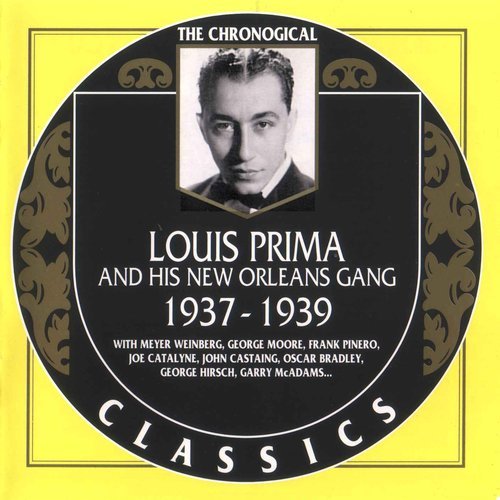

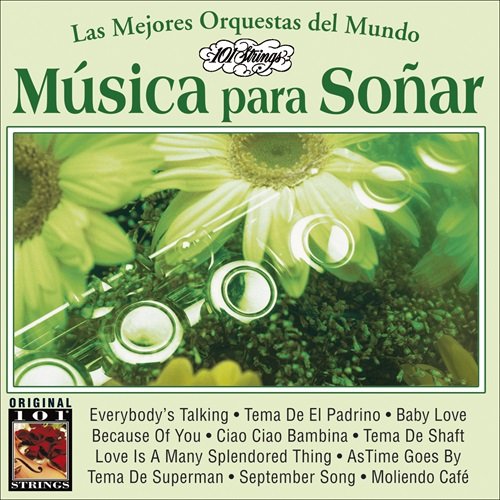
![Alcides Neto - Amú (2026) [Hi-Res] Alcides Neto - Amú (2026) [Hi-Res]](https://img.israbox.com/img/2026-02/26/mtckmw6jmvula60sukh6h3h26.jpg)

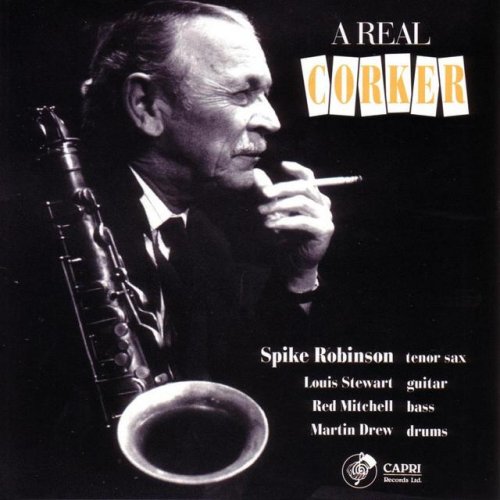

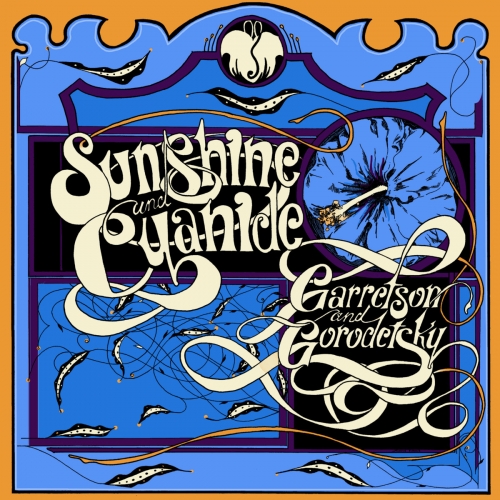
![Samir Aouad - Casablanca (2026) [Hi-Res] Samir Aouad - Casablanca (2026) [Hi-Res]](https://img.israbox.com/img/2026-02/26/cpef8nay7or1kmufgugfd6uy0.jpg)
![VA - 20 Years Into An Infinite Musical Journey (2025) [SACD] VA - 20 Years Into An Infinite Musical Journey (2025) [SACD]](https://www.dibpic.com/uploads/posts/2026-02/1771834929_ff.jpg)
